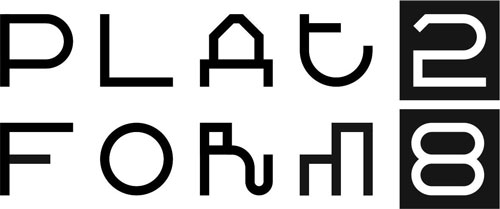
Cities: X Lines: Approaches to City and Open Territory Design
January 2004
By Joan Busquets in Collaboration with Felipe Correa
This publication documents three years of faculty research seminars at the Harvard Graduate School of Design that focused on the development of a pedagogic taxonomy to frame the methods and tools with which designers currently shape cities and open territories.
The work documented in the catalogue presents the significant shifts designers have made in their projection of the city. Over the past three decades, new techniques in working the built environment have been deployed in multiple settings, interacting with a wide array of cultures, scales and intensities. Furthermore, the notion that urban grounds can be successfully refurbished is gaining clout rapidly, while the innovative nature of these interventions is creating spaces of an unprecedented urban quality. The scope of Cities: 10 Lines focuses broadly on:
new ways to organize infrastructure and programs
the role of the designer as an agent within the broader public/private field
new technological changes fueled by a post-industrial context
new conceptions of operative contextualism
This investigation frames the role of the designer in the built environment as well as possible strategies and/or actions that can be taken upon encountering different projects and contexts. Furthermore, Cities: 10 Linesserves as an additional initiative to develop a stronger urban culture that is more attuned to a post-industrial condition and acknowledges its inherent potential for unprecedented forms of urbanity. The catalog documents the most significant, worldwide case studies of each approach and traes back to precedents and referents, establishing a theoretical framework and critical assessment of each line of work.
- Bracket 2: Goes Soft
- Cities: X Lines: Approaches to City and Open Territory Design
- City Sense and City Design: Writings and Projects of Kevin Lynch
- City Transformed: Urban Architecture at the Beginning of the 21st Century
- Collage City
- Combinatory Urbanism : A Realignment of Complex Behavior and Collective Form
- Critical Spatial Practice #6: The Roundabout Revolutions
- Delirious New York: A Retroactive Manifesto For Manhattan
- Designing Cities
- Event Cities 02
- Event Cities 03
- Event Cities 04
- Fast-Forward Urbanism: Rethinking Architecture's Engagement with the City
- Garden Cities of Tomorrow
- Going Public: Public Architecture, Urbanism And Interventions
- Heterotopia and the City: Public Space in a Postcivil Society
- La rue est à nous... tous! ( The street belongs to all of us! )
- Made in Tokyo: Guide Book
- Masterplanning the Adaptive City: Computational Urbanism in the Twenty-First Century
- Measuring The Non-measurable 02: Tokyo/bangkok/singapore
- Measuring The Non-measurable 03: Mn'm Workbook 1
- Measuring The Non-measurable 04: Mn'm Workbook 2
- Measuring The Non-measurable 05: Post-souvenir City
- Measuring The Non-measurable 06: Subjectivities In Investigation Of The Urban
- Measuring The Non-measurable 07: Mn'm Workbook 3
- Measuring The Non-measurable 08: In The Search Of Urban Quality
- Megastructure Reloaded: Visionary Architecture and Urban Planning of the 1960s Reflected by Contemporary Artists
- Monu #13 Most Valuable Urbanism
- Monu #14 Editing Urbanism
- Monu #15 Post-ideological Urbanism
- Monu #16 Non-urbanism
- Monu #17 Next Urbanism
- Monu #18 Communal Urbanism
- Monu #19 Greater Urbanism
- Monu #20 Geographical Urbanism
- Monu #21 Interior Urbanism
- Monu #22 Transnational Urbanism
- New City Spaces
- Points + Lines: Diagrams and Projects for the City
- Public Space
- Recombinant Urbanism: Conceptual Modeling in Architecture, Urban Design and City Theory
- S,M,L,XL
- Self-Sufficient City
- Small Scale: Creative Solutions for Better City Living
- Sociopolis Project for a City of Future
- System City: Infrastructure and the Space of Flows
- The City In The City: Berlin: A Green Archipelago
- The City, Seen as a Garden of Ideas
- The Death And Life Of Great American Cities
- The Endless City: The Urban Age Project by the London School of Economics and Deutsche Bank's Alfred Herrhausen Society
- The Exposed City: Mapping the Urban Invisibles
- The Public Chance: New Urban Landscapes
- The Self-Sufficient City: Internet has changed our lives but it hasn't changed our cities, yet.
- The Superlative City: Dubai and the Urban Condition in the Early Twenty-First Century
- Urban Future Manifestos
- Urban Intensities: Contemporary Housing Types And Territories
- Urban Solutions: Building Solutions, Green Solutions, Culture and Research
- Urbanity: Twenty Years Later: Projects for Central European Capitals
- Verb Connection
- Writing Urbanism: A Design Reader (The ACSA Architectural Education Series)
- Young-Old: Urban Utopias of an Aging Society


